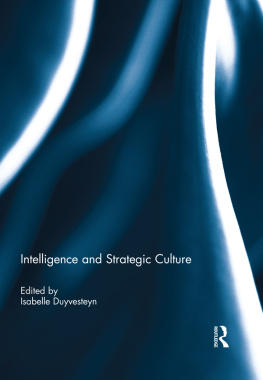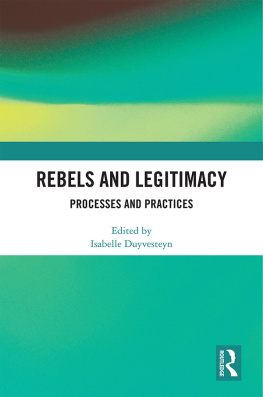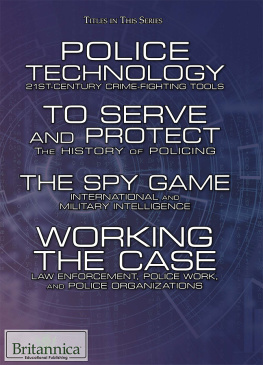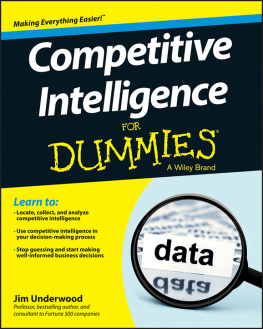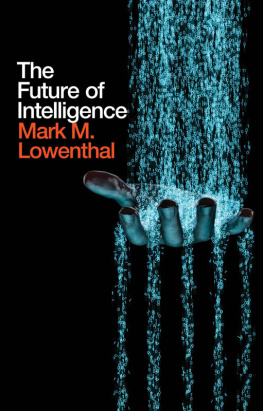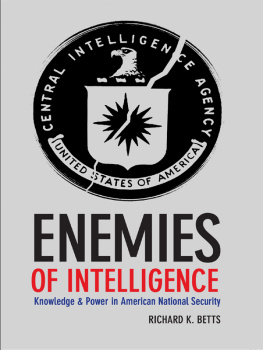Intelligence and Strategic Culture
Reliable information on potential security threats is not just the result of diligent intelligence work but also a product of context and culture. The volume explores the nexus between the intelligence process and strategic culture. How can and does the strategic outlook of the United States and the United Kingdom in particular, influence the intelligence gathering, assessment and dissemination process?
This book contains an assessment of how political agendas and ideological outlook have significant influence on both the content and process of intelligence. It looks in particular at the premise of hearts and minds policies, culture and intelligence gathering in counter-insurgency operations; at case studies from imperial Malaya and Iran in the 1950s and at instances of intelligence failure, e.g. the case of Iraq in 2003. How was intelligence, or the lack thereof, a product of political culture and how did it play a role in the political praxis?
The book shows that political agendas and the ideological outlook have a significant influence upon both the content and process of intelligence.
This book was originally published as a special issue of Intelligence and National Security.
Isabelle Duyvesteyn is a Senior Lecturer/Researcher at the Department of History of International Relations at Utrecht University, The Netherlands. She works in the area of war and peace studies and has published previously on terrorism, insurgency, civil war and strategy.
Intelligence and Strategic Culture
Edited by
Isabelle Duyvesteyn
First published 2013
by Routledge
2 Park Square, Milton Park, Abingdon, Oxon, OX14 4RN
Simultaneously published in the USA and Canada
by Routledge
711 Third Avenue, New York, NY 10017
Routledge is an imprint of the Taylor & Francis Group, an informa business
2013 Taylor & Francis
This book is a reproduction of Intelligence and National Security, vol. 26, issue 3. The Publisher requests to those authors who may be citing this book to state, also, the bibliographical details of the special issue on which the book was based.
All rights reserved. No part of this book may be reprinted or reproduced or utilised in any form or by any electronic, mechanical, or other means, now known or hereafter invented, including photocopying and recording, or in any information storage or retrieval system, without permission in writing from the publishers.
Trademark notice: Product or corporate names may be trademarks or registered trademarks, and are used only for identification and explanation without intent to infringe.
British Library Cataloguing in Publication Data
A catalogue record for this book is available from the British Library
ISBN13: 978-0-415-52354-7
Publishers Note
The publisher would like to make readers aware that the chapters in this book may be referred to as articles as they are identical to the articles published in the special issue. The publisher accepts responsibility for any inconsistencies that may have arisen in the course of preparing this volume for print.
Contents
Citation Information
Joop van Reijn
Isabelle Duyvesteyn
Georgina Sinclair
Matthew M. Aid
Andreas Etges
John N.L. Morrison
Isabelle Duyvesteyn
The chapters in this book were originally published in the Intelligence and National Security, volume 26, issue 3 (July 2011). When citing this material, please use the original page numbering for each article, as follows:
Foreword
Intelligence and Strategic Culture: Essays on American and British Praxis since the Second World War
Joop Van Reijn
Intelligence and National Security, volume 26, issue 3 (July 2011) pp. 441444
Chapter 1
Hearts and Minds, Cultural Awareness and Good Intelligence: The Blueprint for Successful Counter-insurgency?
Isabelle Duyvesteyn
Intelligence and National Security, volume 26, issue 3 (July 2011) pp. 445459
Chapter 2
The Sharp End of the Intelligence Machine: The Rise of the Malayan Police Special Branch 19481955
Georgina Sinclair
Intelligence and National Security, volume 26, issue 3 (July 2011) pp. 460477
Chapter 3
Sins of Omission and Commission: Strategic Cultural Factors and US Intelligence Failures during the Cold War
Matthew M. Aid
Intelligence and National Security, volume 26, issue 3 (July 2011) pp. 478494
Chapter 4
All that Glitters is Not Gold: The 1953 Coup against Mohammed Mossadegh in Iran
Andreas Etges
Intelligence and National Security, volume 26, issue 3 (July 2011) pp. 495508
Chapter 5
British Intelligence Failures in Iraq
John N.L. Morrison
Intelligence and National Security, volume 26, issue 3 (July 2011) pp. 509520
Chapter 6
Intelligence and Strategic Culture: Some Observations
Isabelle Duyvesteyn
Intelligence and National Security, volume 26, issue 3 (July 2011) pp. 521530
Hugo Abedul is a writer and researcher. He lives in London.
Matthew Aid is an independent writer and consultant on intelligence and security related matters. His most recent publications include: The Secret Sentry: The Untold History of the National Security Agency (New York: Bloomsbury Press 2009). He is co-editor with Cees Wiebes of Secrets of Signals Intelligence During the Cold War and Beyond (London: Frank Cass 2001). Mr Aid is also the author of a large number of scholarly articles on intelligence and security matters, focusing primarily on issues relating to signals intelligence (SIGINT).
Isabelle Duyvesteyn is Associate Professor at the Department of History of International Relations, Utrecht University in the Netherlands. She completed her PhD at the Department of War Studies at Kings College in London. Previously she has worked at the Royal Military Academy in the Netherlands and the Netherlands Institute for International Relations. She is currently conducting a study of the history and effectiveness of modern counter-terrorism funded by the Netherlands Organisation for Scientific Research (NWO). Her work has been published in several journals, among others, Civil Wars, Security Studies and Studies in Conflict and Terrorism. Her most recent publications are an edited volume with Jan Angstrom: Modern War and the Utility of Force: Challenges, Methods and Strategy (London: Routledge 2010).
Andreas Etges is Professor of North American history at the John F. Kennedy Institute for North American Studies of the Freie Universitat Berlin in Germany. Among his research interests are nationalism, the Cold War, the Kennedy presidency, and history and memory. He curated special exhibits on John F. Kennedy in Berlin and Vienna and is also the curator of the museum The Kennedys in Berlin. His publications include a comparative study of economic nationalism: Wirtschaftsnationalismus: USA und Deutschland im Vergleich (18151914), (Frankfurt 1999), and John F. Kennedy (Munich 2003). He is currently working on a study of Eugene Burdicks and William Lederers The Ugly American of 1958 and the debate about the American foreign service in the 1950s and 1960s.
R. Gerald Hughes is a lecturer at Aberystwyth University and an assistant (reviews) editor for

